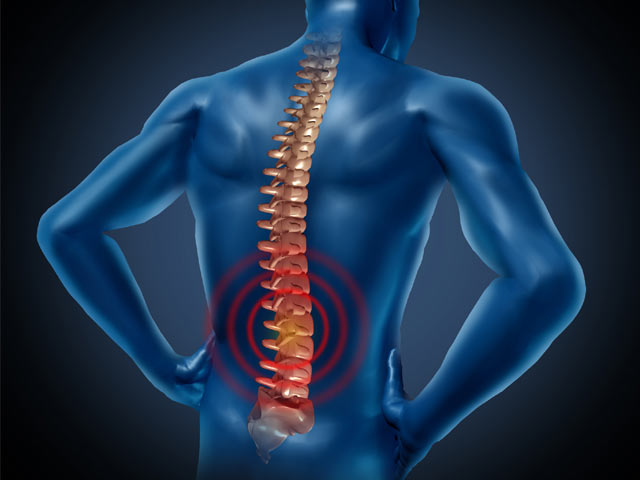Coffee, Diet and Health- what are the health benefits of coffee and how do different countries view coffee and health?
Despite a cultural love of coffee, over a third (39%) of Europeans are uncertain about the potential health benefits of coffee. Coffee remains integrated into the European lifestyle: predominantly drunk at home, at work or in cafes, with 40% of respondents saying coffee gets their day off to a good start.
The consumer research, conducted by the Institute for Scientific Information on Coffee (ISIC), surveyed over 4,000 people across 10 European countries[1], to understand their beliefs, behaviours, and knowledge regarding a healthy diet.
The results show that although 70% of Europeans believe they are healthy, many still don’t know what lifestyle changes they can make to help reduce their risk of common, serious health conditions such as type 2 diabetes, Alzheimer’s disease, and cardiovascular disease. Age was an important determining factor: with the youngest and oldest respondents revealing the biggest knowledge gaps.

Coffee, Diet and Health
Key findings:
European respondents told us that they are healthy. Given the overall rise in obesity and related health problems in Europe, some respondents may be over-confident about their own health[2]:
· 70% of Europeans overall described themselves as either ‘fairly healthy’ or ‘very healthy’
· The French were most likely to describe themselves as either ‘fairly healthy’ or ‘very healthy’ (83%)
· The Danes were most likely to describe themselves as either ‘fairly unhealthy’ or ‘very unhealthy’ (51%)
· Coffee drinkers were 12% more likely to report better levels of health than non-coffee drinkers
· 76% of Europeans said they need more information on maintaining a healthy lifestyle
· 46% of women and 40% of men said their New Year’s resolution was to eat more healthily in 2016
Day-to-day health anxieties are prioritised over longer-term health risks, according to the survey results, despite the fact that cancer[3], cardiovascular (heart) disease[4] and excessive alcohol consumption[5] are some of the biggest public health concerns in Europe:
· 24% of respondents wanted to better manage their stress levels (the most stressed country was Italy, with 32% of Italians worried about stress), and 28% wanted to feel more energetic and less fatigued (the most tired country was Finland, with 45% of Finns worried about fatigue); compared to just 12% overall who were concerned about getting cancer, and 10% who were concerned about their heart health
· 18-24 year olds are as likely to cut down on coffee for their New Year’s resolution as they are to cut down on alcohol (9% for both). Danes are 2% more likely to cut down on alcohol than coffee
Respondents often struggled to recognise the potential health benefits of coffee:
· 71% of Europeans believe that drinking coffee does not help to reduce the risk of type 2 diabetes (75% of those aged 55+ held this belief). However, scientific research suggests that drinking 3-4 cups of coffee a day is associated with an approximate 25% lower risk of developing type 2 diabetes[6,7]
· 63% of Europeans believe that drinking coffee does not help to reduce the risk of mental decline in older people, for example Alzheimer’s and Parkinson’s disease (64% of those aged 55+ who answered this question held this belief). Yet research suggests that moderate, life-long consumption of coffee is associated with a reduced risk of developing Alzheimer’s[8,9]
· 42% of Europeans believe that drinking coffee increases the risk of cardiovascular (heart) disease (54% of those aged 18-24 held this belief). But scientific studies have suggested an association between moderate coffee consumption and a reduced risk of cardiovascular disease[10,11]
Age plays a large role in defining respondents’ awareness of coffee’s role in a healthy diet:
· On average, 18-24 year olds were the least successful at recognising the potential health benefits of coffee: for example, just over a quarter (28%) did not know that coffee can help increase concentration and alertness
· Older respondents displayed very poor knowledge of diseases that could potentially pose the highest statistical risk to them: over half (56%) of those aged 35 and above are not aware of the potential health benefits of coffee relating specifically to cognitive decline, type 2 diabetes, and cardiovascular disease risk
67% of Europeans stated that they could not imagine life without coffee. The health effects of coffee consumption have been extensively researched: moderate consumption of coffee at 3-5 cups per day[12] has been associated with a range of desirable physiological effects and fits within a healthy diet and active lifestyle. Pregnant and breastfeeding women are advised by EFSA to consume no more than 200mg of caffeine, per day, from all sources. This is equivalent to no more than two cups per day[13].
Professor Chris Seal, Professor of Food and Human Nutrition at Newcastle University, UK said: “Many Europeans enjoy a cup of coffee, but clearly some feel guilty about drinking it – and unnecessarily so. Moderate, regular coffee consumption at 3-5 cups per day has been linked to a number of positive health benefits, such as reducing the risk of cardiovascular disease and type 2 diabetes. Hopefully, this means people will now enjoy their cup of coffee without the guilt.”
References
1. 4119 respondents across 10 European countries were surveyed by ISIC in November 2015
2. World Health Organization, ‘Obesity: Data and Statistics’ Available at: http://www.euro.who.int/en/health-topics/noncommunicable-diseases/obesity/data-and-statistics
3. World Health Organization, ‘Cancer: Data and Statistics’ Available at: http://www.euro.who.int/en/health-topics/noncommunicable-diseases/cancer/data-and-statistics
4. World Health Organization, ‘Cardiovascular diseases: Data and Statistics’ Available at: http://www.euro.who.int/en/health-topics/noncommunicable-diseases/cardiovascular-diseases/data-and-statistics
5. World Health Organization, ‘Alcohol use: Data and Statistics’ Available at: http://www.euro.who.int/en/health-topics/disease-prevention/alcohol-use/data-and-statistics
6. Huxley R. et al. (2009) Coffee, Decaffeinated Coffee, and Tea Consumption in Relation to Incident Type 2 Diabetes Mellitus. Arch Intern Med, 169:2053-63
7. Zhang Y. et al. (2011) Coffee consumption and the incidence of type 2 diabetes in men and women with normal glucose tolerance: The Strong Heart Study. Nutr Metab Cardiovasc Dis. 21(6):418-23
8. Santos C. et al. (2010) Caffeine intake and dementia: systematic review and meta-analysis. J Alzheimers Dis, 20(1):187-204
9. Barranco Quintana J.L. et al. (2007) Alzheimer’s disease and coffee: a quantitative review. Neurol Res, 29:91-5
10. European Heart Network, ‘European Cardiovascular Disease Statistics 2012’ Available at: http://www.ehnheart.org/cvd-statistics.html
11. Ding M. et al (2014) Long-term coffee consumption and risk of cardiovascular disease: a systematic review and a dose-response meta-analysis of prospective cohort studies. Circulation. 129(6):643-59
12. Harvard T.H. Chan School of Public Health, ‘Moderate coffee drinking may lower risk of premature death’
Available at: http://www.hsph.harvard.edu/news/press-releases/moderate-coffee-drinking-may-lower-risk-of-premature-death/
13. EFSA (2015) Scientific Opinion on the Safety of Caffeine, EFSA Journal, 13(5):4102




